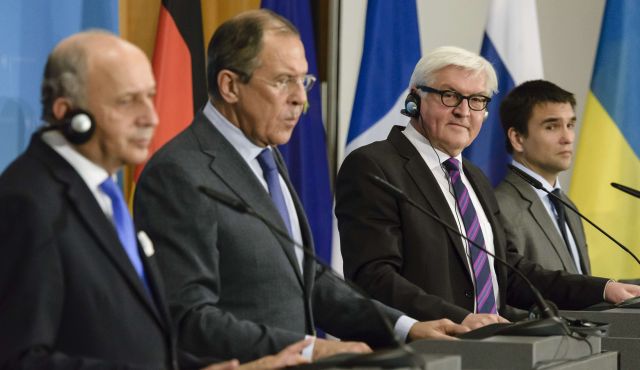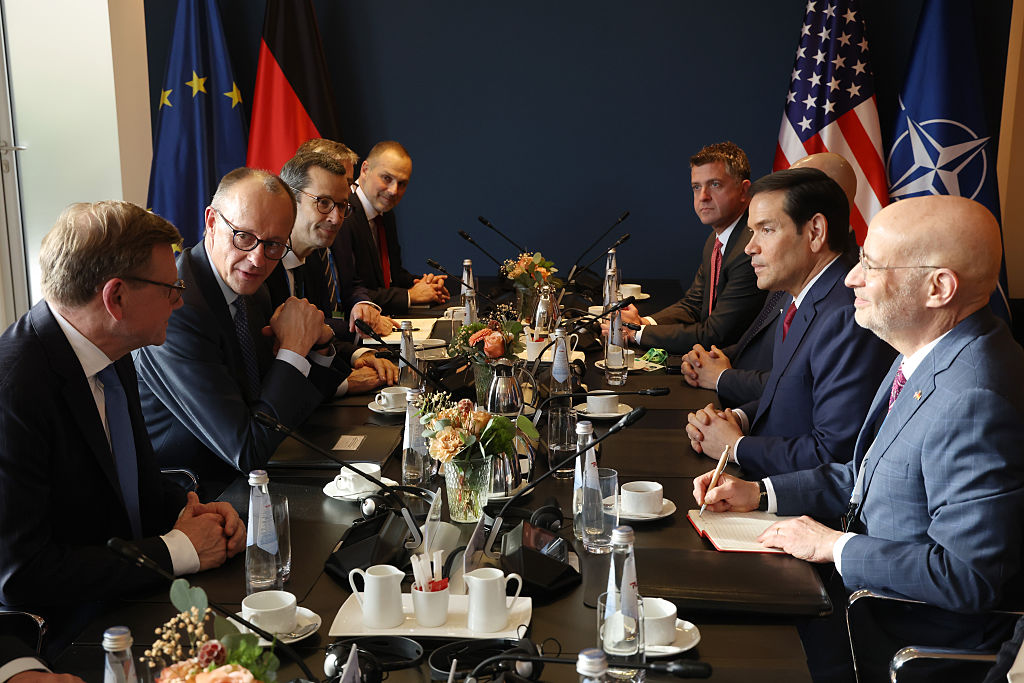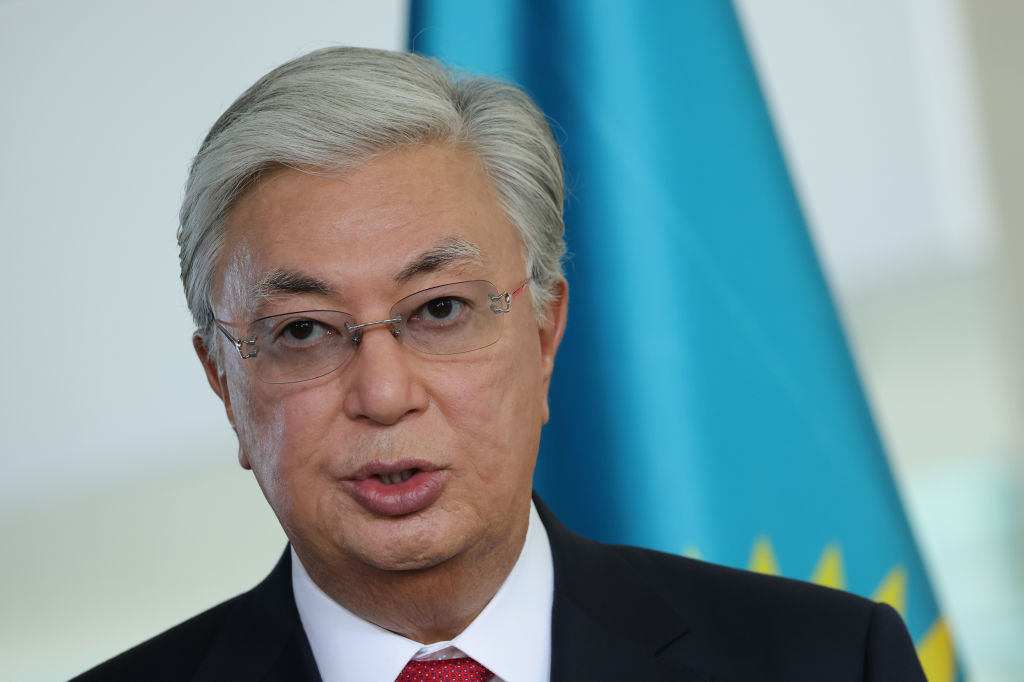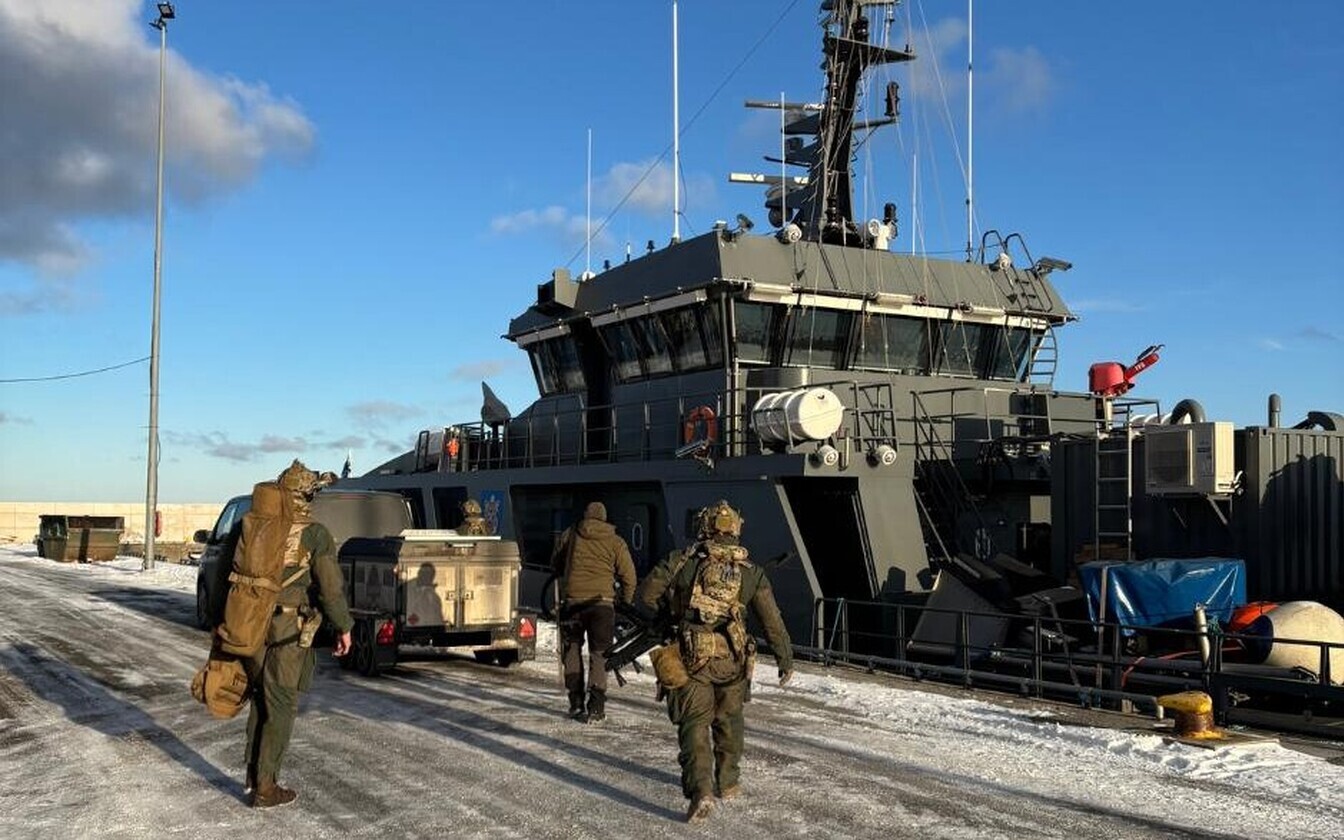
Ukraine Makes Far-Reaching Concessions to Russia at Berlin Meeting
Ukraine Makes Far-Reaching Concessions to Russia at Berlin Meeting
The foreign affairs ministers of Russia, Germany, France, and Ukraine conferred on July 2 in Berlin, in a format designed to subject the Ukrainian side to pressure from the other three parties. The Ukrainian side has made far-reaching concessions in this meeting. Those terms are due to be formalized in a Russia-Ukraine-OSCE meeting (without Western participation) on July 5. The ceasefire stipulated in Berlin would, if implemented, stop the Ukrainian forces’ rapid advances against pro-Russia forces in Ukraine’s east. These concessions would haunt Ukraine for a long time to come, if implemented as stipulated in Berlin (see below).
German and French policies prioritize bilateral relations with Russia at the expense of Ukraine in the ongoing crisis. The United States, which does not do so, and differs with Berlin and Paris in this regard, was not invited to the Berlin meeting. Neither was the European Commission; whereas France, a negligible player in this crisis, was invited to the Berlin meeting for symbolic support to a basically German overture toward Russia.
This marks an unprecedented advance of Germany’s ambition to handle security issues in Europe’s East on a bilateral Russo-German basis (as foreshadowed in the 2010 Meseberg Memorandum), excluding the United States and bypassing the European Union. In the current crisis, German policy is guided by the principle of defusing tensions with Russia over Ukraine and returning to business as usual with Russia after a decent interval.
Germany’s Foreign Affairs Minister, Frank-Walter Steinmeier, convened this meeting as an emergency response to Ukraine’s June 30 resumption of military operations against Russia’s proxy forces on Ukraine’s territory. Those forces had inflicted serious losses on Ukraine during the ten days’ ceasefire that Ukraine had unilaterally adhered to. Berlin had nudged Kyiv into that unilateral ceasefire (see EDM, June 21 through June 30).
Recognizing that the pro-Russia forces breached the ceasefire massively, Germany now seeks to establish a bilateral ceasefire and follow-up negotiations between the Ukrainian government and the pro-Russia secessionists, in a framework that includes Russia while excluding the West. These elements form the basis of a Russo-German consensus regarding Ukraine.
The “Joint Declaration by the Foreign Ministers of Germany, France, Russia, and Ukraine” (www.auswaertiges-amt.de, July 2) “stress[es] the necessity of a sustainable ceasefire to be agreed upon swiftly and observed by all concerned…Ministers agree to take all necessary measures and use their influence on the concerned parties with a view to achieving this goal.”
That implies: a) an unconditional ceasefire, thereby throwing out Ukrainian President Petro Poroshenko’s June 20 peace plan, in which ceasefire is conditional upon disarmament of pro-Russia forces (in return for amnesty) and/or the evacuation of those forces from Ukraine to Russia; b) treating the “parties” (Ukrainian government and Russia’s armed proxies) on an equal footing by the Berlin document; c) Russia is asked to control its protégés in the field more tightly, in return for Germany and other West-European governments pressing Ukraine into giving up its right to self-defense.
Under the joint declaration, ”the Contact Group should resume no later than July 5, with the goal of reaching an unconditional [sic] and mutually agreed ceasefire.” “Mutually agreed” implies: negotiated by Kyiv with the pro-Russia forces on an equal basis, as well as veto power for those forces over the terms and their implementation. As an upshot, the secessionist forces will remain entrenched in Ukraine’s east.
The Berlin declaration does not mention the Contact Group’s composition. In fact, the Contact Group has met twice already (June 23 and June 30), its composition and deliberations being publicly known. It includes representatives of Ukraine, Russia, the OSCE (which operates under Russia’ s statutory veto), and several sets of Russia’s proxies, namely: the Donetsk and Luhansk “people’s republics” (now “Novorossiya”), as well as Ukraine’s foremost pro-Kremlin politician, Viktor Medvedchuk, as an intermediary. Ukraine is alone in this setting, with Russia wielding multiple votes, directly and indirectly (Russia’s own vote plus Donetsk and Luhansk, Medvedchuk, and Russia’s statutory veto right within the OSCE). German Chancellor Angela Merkel personally proposed to Poroshenko that Medvedchuk be included in the Contact group—a proposal that the Kremlin publicly hailed and Poroshenko reluctantly accepted (Interfax, Ukrinform, www.ukraine.president.gov, June 23 – 26).
The Berlin declaration is not binding. If implemented with Ukraine’s assent, the consequences would include: exonerating Russia of its responsibility as the conflict’s initiator, and defining the conflict instead as a purely internal one within Ukraine; the ceasefire as a goal in itself (“de-escalation”), perpetuating the secessionist forces in the field; pressing Ukraine’s government into negotiations with Russia’s armed protégés in Donetsk and Luhansk, legitimizing these de facto; elevating Russia to a mediator’s role; disengaging the West from the conflict-resolution process, and leaving this to the OSCE to handle as a “frozen conflict,” for decades to come.


